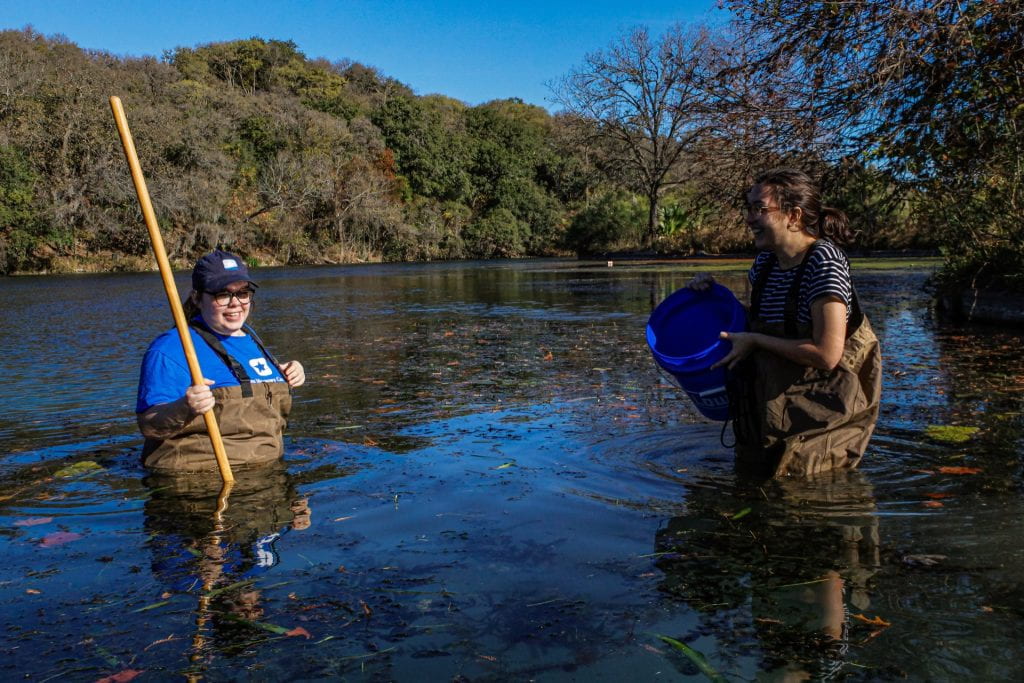The land cracked open. Crops and cattle withered. Lake beds blistered. Without shame or mercy, the 2010-2011 Texas Drought haunted my year of 6th grade. Watching this disaster unfold every night on the news left me with nightmares and questions. What can we do to stop this from happening again? What will we do if this happens again? Years later in college, when declaring my major, this drought returned to haunt me. I couldn’t refuse its call to pursue a career related to environmental stewardship. After a lot of research, I discovered Texas Stream Team at The Meadows Center for Water and the Environment was a statewide leader in promoting environmental stewardship using citizen science. I jumped at the opportunity to join their Texas State University student chapter, Bobcat Stream Team, and would later start employment with Texas Stream Team at the start of 2021.

Texas Stream Team is a statewide, nonprofit water quality monitoring program focused on training citizen scientists to collect surface water data that can be used to protect Texas waterways. Citizen science is scientific research conducted by nonprofessionals in collaboration with professional scientists. Throughout the course of my employment, I quickly identified citizen science as an asset to advance environmental education and protection initiatives. Many citizen scientists are concerned community members wanting to address and solve local environmental issues, and citizen science is an avenue to public awareness and engagement. With the help of scientific professionals establishing methods to collect quality-assured data and expand data accessibility, citizen science can be used to inform decision-makers and influence policy. This was seen in the 1980s when the San Marcos River Foundation successfully increased the effluent standards on the City of San Marcos’s wastewater discharge permit.

We are stronger when we work together. This is important to remember when tackling climate change. The biggest opponents to climate change solutions are time and lack of knowledge. Citizen science addresses both, educating and empowering individuals to make changes in their communities while helping collect large amounts of data professionals could not collect on their own. As I pursue a career in environmental stewardship, I aim to utilize citizen science to achieve the goals of my organization, community, and planet.
Learn more about citizen science and environmental protection here.
